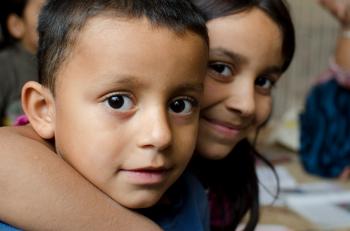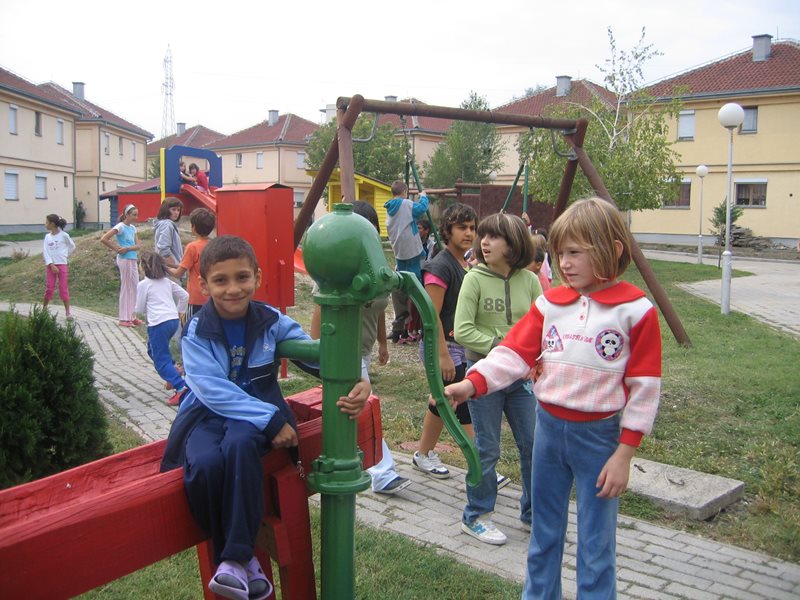Many families continue to live in poverty
-61776_JPG.jpg?width=800)
Skopje is the capital city of the Former Yugoslav Republic of Macedonia and is located in the northern part of the country, not far from the border with Kosovo. It became the capital city in 1991 and, as such, is the country's political and economic centre. It is home to a mixed population: Macedonians form the largest ethnic group, while Albanians and Roma people also form important minorities.
Macedonia remains one of Europe's poorest countries. As the capital city, Skopje is better off than other areas of the country but inequality has increased and in many areas of the city unemployment remains high and a high percentage of the population continue to live in poverty. These families often live in inadequate housing and access to health care and education is limited. Children from these households often lack the protection they need, and this makes them vulnerable to exploitation, for example by criminal gangs and human traffickers.
Families from ethnic minorities, mostly those of Roma origins, are one of the main focuses of our work in Skopje. Many Roma families and their children live in poverty; furthermore, the problematic access to education means that, without special support, it is difficult for them to break out of the cycle of deprivation. Their situation is not helped by the prejudice and exclusion which they experience in Macedonian society.
The need to support vulnerable families
SOS Children's Villages has adapted its activities to the local needs. For example, one of our SOS Social Centres is located in Shuto Orizari, where many vulnerable families live. The district is also home to the largest Roma community in Macedonia. Another of our concerns has been the high number of children who live in institutional settings. We are working hard to support families so that they can stay together, and we provide family-based care for those children who have lost parental care.
What we do in Skopje

SOS Children's Villages works closely with the local community. In two of the poorest districts of the capital, we offer family strengthening programmes which, in collaboration with local agencies, aim to ensure that children have access to essential educational, health and nutritional services.
We give families in need basic material aid such as hygiene articles, food and medicine and help them improve their housing conditions. We also provide parents with legal information, counselling and psychological support, with advice on parenting skills and help them to seek employment.
If children can no longer live with their families, they can find a loving home in one of the twelve SOS families, which provide a stable and loving home for children who have lost the care of their parents.The children are fully integrated into the surrounding community as they attend the local schools alongside children from the area. The SOS Children's Village has a vast playground where children from the neighbourhood join the children from SOS families to play and have fun together. The children in our care are offered support according to their needs, be it with their school work or with therapy. Many after-school activities take place in the neighbourhood, and many activities that we organise in the village are well attended by local children.
Young people who are ready to leave their SOS families, can move into shared accommodation while attending further education or training. The social and economic situation of Macedonia often makes it difficult for young people to secure their future. Our SOS Youth Programme helps them make the transition into adulthood; with the support of qualified staff, they learn to shoulder responsibilities and make their own decisions.